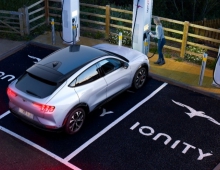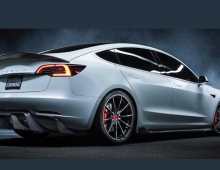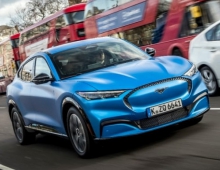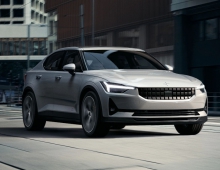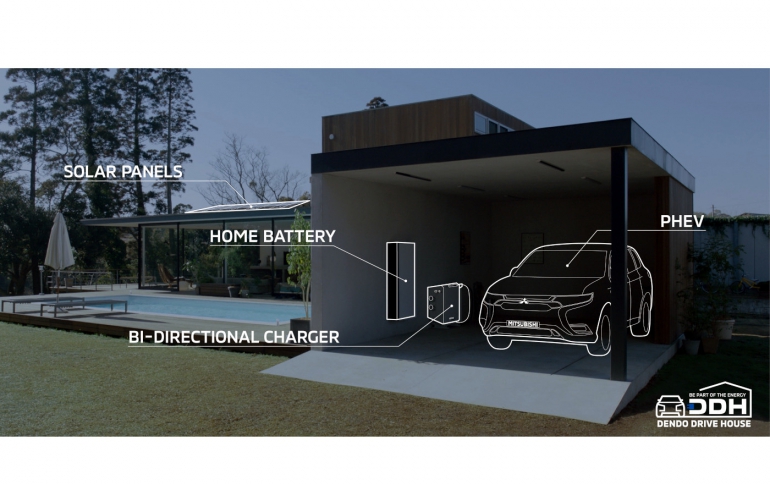
Mitsubishi DENDO DRIVE HOUSE System Shares Power Between Your Car and Home
Mitsubishi Motors Corporation (MMC) made the global debut of the DENDO DRIVE HOUSE (DDH) System at the Geneva International Motor Show.
DDH is a new energy ecosystem which allows owners of electric vehicles to generate, store and share energy automatically between their car and home,. DDH is a V2H based system which will be offered to customers at Mitsubishi dealerships when buying a battery-electric (EV) or plug-in hybrid electric vehicle (PHEV).
The packaged system is comprised of an EV/PHEV, a bi-directional charger, solar panels, and home battery that is designed for home use. The package allows consumes to charge their EV/PHEV at home using solar-generated power, and to supply electricity from their EV/PHEV to the home.
Mitsubishi says that the DDH system delivers significant cost benefits. Consumers can reduce fuel costs by using solar panels to generate power during the day for charging EV/PHEV and domestic storage batteries. At night, they can reduce power costs by using a bi-directional charger to supply power from their EV/PHEV to the home.
DDH also provides an emergency power source that can supply power from the EV/PHEV or storage battery to run appliances in the home.
MMC plans to start offering the service initially in Japan and Europe later this year. But the system will not come cheap. The bi-directional charger itself could cost as much as €10,000, and you’ll also need to pay for the solar panels, home battery, and mandatory professional installation.
Mitsubishi is not the only company to have considered using a bi-directional car charger at home. In the UK, the energy supplier OVO announced a vehicle-to-grid (V2G) trial last year, although it lacked the home battery portion of Mitsubishi’s system. Tesla’s original Roadster also supported the functionality before it was removed in later models, and last year its CEO Elon Musk mused that the company could bring it back in the future.


